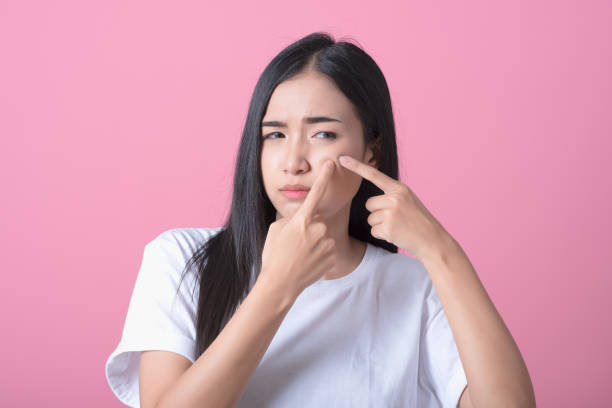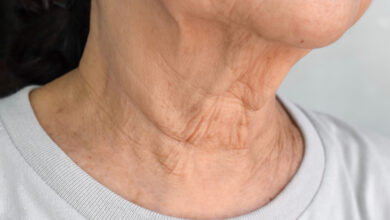How can isotretinoin help with treating acne?

Acne is a common skin condition that affects millions of people worldwide, characterized by the formation of pimples, blackheads, whiteheads, and cysts on the face, neck, chest, back, and shoulders. While acne can often be managed with topical treatments and oral medications, severe or persistent cases may require more aggressive therapy. Buy Isotretinoin Online, a potent oral medication, is highly effective in treating severe acne that has not responded to other treatments. This comprehensive guide aims to provide detailed information about isotretinoin, including its mechanism of action, uses, dosage, potential side effects, and considerations for the safe and effective treatment of acne.
Understanding Acne:
Acne is a multifactorial skin disorder characterized by the overproduction of sebum (oil), clogging of hair follicles, bacterial overgrowth (particularly Propionibacterium acnes), and inflammation. These factors contribute to the formation of various types of acne lesions, including comedones (non-inflammatory lesions), papules, pustules, nodules, and cysts (inflammatory lesions). Acne can have significant physical and psychosocial effects, impacting self-esteem, body image, and quality of life.
Role of Isotretinoin in Acne Treatment:
Isotretinoin, also known by the brand name Accutane (among others), is a synthetic derivative of vitamin A (retinoid) with potent anti-acne properties. It is reserved for severe or treatment-resistant cases of acne that have not responded to conventional therapies. Isotretinoin addresses multiple factors involved in acne pathogenesis, making it highly effective in achieving long-term remission and preventing acne relapse.
Mechanism of Action:
Isotretinoin exerts its therapeutic effects through several mechanisms:
- Normalizes Sebum Production: Isotretinoin reduces sebum production by suppressing the activity of sebaceous glands, leading to decreased oiliness of the skin and prevention of pore blockage.
- Prevents Follicular Hyperkeratinization: Isotretinoin promotes the shedding of dead skin cells and prevents the formation of microcomedones, the precursor lesions of acne.
- Anti-inflammatory Effects: Isotretinoin reduces inflammation by inhibiting the expression of pro-inflammatory mediators and suppressing the recruitment of inflammatory cells to the skin.
- Anti-bacterial Effects: Isotretinoin inhibits the growth of Propionibacterium acnes, the bacteria responsible for acne-related inflammation and infection.
- Modulates Immune Response: Isotretinoin modulates the immune response in the skin, reducing the exaggerated immune reactions that contribute to acne formation.
Indications for Isotretinoin Use:
Buy Accutane Online is indicated for the treatment of severe recalcitrant nodular acne that has not responded to conventional therapies, including topical retinoids, antibiotics, and oral contraceptives. It is also prescribed for cases of moderate to severe acne with a high risk of scarring or significant psychosocial impact.
Dosage and Treatment Regimen:
Isotretinoin is typically administered orally in the form of capsules or tablets. The recommended dosage of isotretinoin varies depending on factors such as the severity of acne, body weight, and individual response to treatment. A standard course of isotretinoin typically lasts for 4 to 6 months, although some individuals may require longer treatment durations. The dosage is usually initiated at a low to moderate level and gradually increased based on tolerability and response to therapy.
Monitoring and Follow-up:
Close monitoring and regular follow-up are essential components of isotretinoin therapy to ensure optimal outcomes and minimize the risk of adverse effects. Healthcare providers typically monitor patients’ progress through periodic evaluations, including physical examinations, laboratory tests (e.g., liver function tests, lipid profiles), and assessments of acne severity and treatment response. Patients are advised to adhere strictly to the prescribed treatment regimen and report any concerning symptoms or side effects promptly.
Potential Side Effects:
Isotretinoin is associated with a range of potential side effects, some of which may be severe or long-lasting. Common side effects of isotretinoin include:
- Dryness of the skin, lips, eyes, and mucous membranes
- Skin sensitivity to sunlight
- Peeling or flaking of the skin
- Nosebleeds
- Muscle and joint pain
- Elevated blood lipid levels
- Liver toxicity
- Mood changes, including depression or suicidal ideation
- Less common but more serious side effects of isotretinoin include:
- Increased intracranial pressure (pseudotumor cerebri)
- Inflammatory bowel disease (IBD)
- Birth defects if taken during pregnancy
- Hearing impairment or tinnitus
- Patients should be educated about the potential side effects of isotretinoin and instructed to contact their healthcare provider if they experience any concerning symptoms during treatment.
Precautions and Contraindications:
Isotretinoin is contraindicated in pregnant women due to the risk of severe birth defects, including craniofacial, cardiac, and central nervous system abnormalities. Women of childbearing potential must use highly effective forms of contraception and undergo regular pregnancy testing before, during, and after isotretinoin therapy. Additionally, isotretinoin should be used with caution in individuals with a history of depression, liver disease, lipid disorders, or inflammatory bowel disease, as it may exacerbate these conditions.
Conclusion:
Isotretinoin is a highly effective medication for the treatment of severe or treatment-resistant acne that has not responded to conventional therapies. By targeting multiple aspects of acne pathogenesis, isotretinoin can achieve long-term remission and prevent acne relapse in many individuals. However, isotretinoin therapy requires careful monitoring and consideration of potential side effects and precautions. Healthcare providers play a crucial role in educating patients about isotretinoin, monitoring treatment progress, and ensuring safe and effective use of the medication for optimal acne management.



